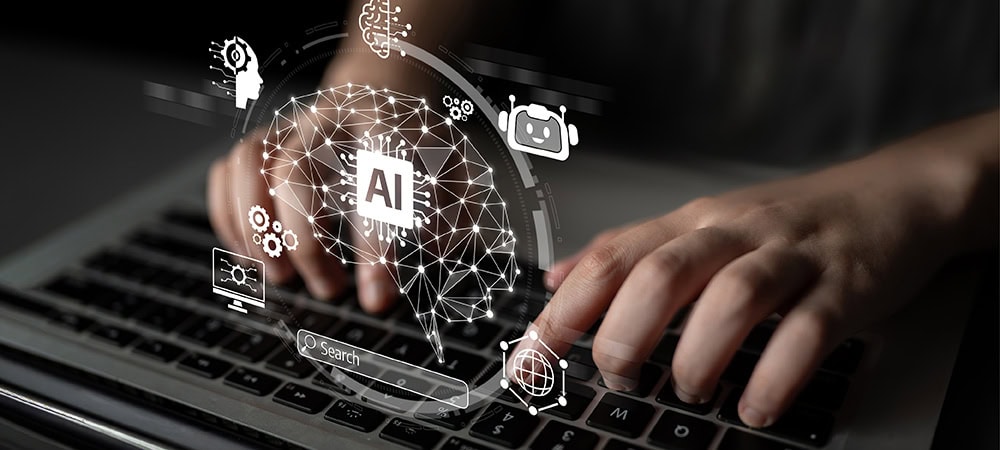

HR and HCM have traditionally had a special place in SAP's customer base. Of course, HR is part of an ERP suite, and SAP has been offering HR solutions for more than 50 years. However, as the technical and organizational requirements for modern organizational structures and processes have changed significantly in recent years, existing SAP customers are demanding new answers. As a cloud-only provider with comprehensive HR, finance, and AI expertise, Workday has become a leading software provider in the SAP community. E3 Editor-in-Chief Peter Färbinger hosted a virtual roundtable discussion with Alexandra Hartung, Head of Medium Enterprise Germany at Workday, Ana Mislitchi, Head of Value Management EMEA at Workday, and Sebastian Rüting, Territory Vice President Continental at Workday partner Kainos. To the YouTube video stream (German audio w/ automatically generated English subtitles available).

HR roundtable
Below is a summary of the E3 video stream, the original of which is available for free on the E3 YouTube channel. The topic is HR management and the impact on finances in SMEs. There are many hidden champions in the German-speaking world and the challenges in the HR sector are huge in every respect. The E3 discussion is about work-life balance, but also about implementation, technology, financing, and how Workday interacts with the SAP system.
The SAP community is thinking outside the box and evaluating other innovative cloud solutions. This includes Workday. Many SMEs have an SAP system in their finance or accounting department. The move to cloud computing has enabled and created new ways of organizing. As a cloud-only provider, Workday has become an important partner to the SAP community.
In this interview, the focus is on SMEs. In other words, not the very large SAP customers using Workday for HR. Are there any special features? Does Workday differentiate between large industry, DAX companies, and SMEs in the DACH region? Are there differences in the mindset of SMEs and large customers?

"The answer is yes and no. Both," says Alexandra Hartung. "Because if we look at the size of the company, it is the range of services that we offer via the HR suite mentioned above, but also the financial solutions. We offer the full range of solutions to our midsize customers as well as to our large customers. And that is something that our SME customers really appreciate. Compared to pure SME solution providers, they often say: "We participate in innovation, maybe in artificial intelligence, digitalization—offerings in this area that the big players can drive much more than a smaller SME can. And we can participate in that across the entire Workday platform."
In the interview with E3, Alexandra Hartung also highlights the differences in how Workday delivers this overall HR solution to midmarket customers. "In the midmarket team, we also work on a package basis to make it more digestible," the Workday manager explains. Companies of this size may not need the entire suite to begin with, but it is important to build a foundation first - an entry-level package that can then grow and scale as the company's needs evolve.
Industries and solutions
Are there industry-specific differences? For example, Workday has a Professional Services Automation solution specifically for the professional services industry. One element that is used in these companies is project organization and management. The HR department benefits in the long run if the skills of the employees are used in a targeted and efficient way. Project times should be automatically recorded and transferred to the finance department: how are projects billed? "And this is a solution module that we offer especially in the service sector," explains Alexandra Hartung. Especially in medium-sized companies. This is a top-down approach. If Workday takes the experience from the large industry at DAX companies, where these implementations have been in place for many years, then a little bit of experience and know-how also flows into the midmarket.
Workday is an enterprise platform that helps companies manage their most important assets—their people and their finances. The Workday platform is powered by artificial intelligence to help customers empower people, optimize work, and drive business. Workday is used by more than 10,500 companies around the world and across industries—from the midmarket to more than 60 percent of the Fortune 500. Workday's business model is built on a strong and successful partner community. One of these partners is Kainos.
Sebastian Rüting, Territory Vice President Continental at Kainos, joins the E3 discussion. "You may not know Kainos as a big brand. That's because we are an IT consultancy from beautiful Northern Ireland with 3000 employees, now global. We are a specialist Workday partner. That means we have really focused on it. With over 1,000 consultants, all certified, we can handle implementations of this scale. And accordingly, we also use the launch approach for SMEs," explains Sebastian Rüting in the E3 round.

What are the learning curves or lessons learned from the big Workday projects? This is exactly the point that Kainos always brings up. "We are not starting from a greenfield site, but rather with preconfigured systems," says Sebastian Rüting. "This means that business processes are already in place, and we have a role concept. And we bring these approaches for SMEs with us, which makes it easier to implement them accordingly.
Integration and interfaces
The ease of access to the system is appealing to future Workday users, as Sebastian Rüting describes: "The nice thing is that we don't need so much support. The advantage on the Workday side is that we don't need any integration within Workday. All functional areas can talk to each other seamlessly. Now we just have to figure out how to get the right data connections to the outside world—out of Workday, but also back into Workday. And this is where we are not starting from scratch. Workday has already done a lot of the groundwork. So we start with a lot of connectors that we can use as a basis for connecting systems.”
Of course, SAP integration is a bit more difficult, as Sebastian Rüting knows from his professional experience, but there is a connector on the Workday side that takes up to 80 percent of the manual work out of mapping and reconciling fields. This means that incoming and outgoing systems can be connected directly. Whether it is a simple connector to an Active Directory or a single sign-on, it works seamlessly.
Ana Mislitchi, Head of Value Management EMEA at Workday, adds to the statement regarding the target audience and the partnership for easy installation: "At Workday, we define SMEs based on the number of employees: companies with up to 3,500 employees are included. Turnover does not play a role here, unlike with some other providers. We work very closely with partners like Kainos. Even before the contract is signed, we work closely together to understand the company's challenges and find the best solution.”

Workday partner community
Kainos typically provides onsite implementation services. Workday ensures that the teams remain engaged throughout the implementation phase. After go-live, the Workday customer success team continues to support customers for the long term. "It is important to us that organizations see the value of our solutions and not just own the software," said Ana Mislitchi, Head of Value Management EMEA at Workday.
Workday manager Alexandra Hartung adds: "This is a critical point. Workday helps companies better align their people strategy with their business goals. For example, we can recruit specialists faster or support strategic decisions such as relocation more efficiently. Workday's central, cloud-based data foundation makes it possible to make informed decisions in real time and make processes more agile overall. "It is not just a question of technology, but also of how we strategically position HR as a value driver," says Alexandra Hartung, who has worked on the project.
Another key focus of the Workday roundtable was AI, which plays an important role for Workday in both HR and finance. AI is an integral part of every Workday solution, and the cloud provider regularly conducts international studies on the topic. AI is completely reshaping the world of ERP and HR. 81 percent of executives currently surveyed by Workday recognize that it is impacting the skill profile of their jobs. The top three application areas for AI are data analytics, fraud detection and security monitoring, and HR and talent acquisition. In fact, the data reveals a clear trend: as the use of AI grows, skills that only humans possess will become even more important. In 2025, AI will play an important role in unlocking efficiencies in the way HR teams work, but it will not replace essential human aspects such as empathy, communication, and relationship building, explains Ana Mislitchi in the interview with E3.
The very skills that AI will not have in the foreseeable future are the ones that will be most valuable in the workplace: ethical decision-making, networking and relationship building, emotional intelligence and empathy, and the ability to resolve conflict. It is striking how differently employees and managers view the need for interpersonal relationships in the workplace. While 82 percent of employees believe the need for human interaction will increase, only 65 percent of managers agree, according to Workday's latest research. For managers, this presents an important opportunity to encourage interpersonal interaction and build strong relationships with their team.
Workday released a global study, "Elevating Human Potential: The AI Skills Revolution," which examines the impact of AI on the job market. The findings contradict the oft-repeated fear that artificial intelligence will replace humans. Rather, AI will act as a catalyst for a re-evaluation of personal skills, making human qualities such as empathy and ethical decision-making the most important assets in the workplace. This tectonic shift is not just about embracing innovative technologies, but about empowering human potential, promoting skills that only humans possess, and redefining what that means in the age of artificial intelligence. The study also surveyed people in Germany, Austria and Switzerland.
AI and people management
The results of the current study underscore the importance of fostering human qualities such as creativity, leadership, learning, trust and collaboration, especially in an AI-driven world. The ERP market is at a tipping point, collectively realizing how much AI will define the future of work and how important human qualities will be in that future—a tipping point towards an AI-driven skills revolution that has the potential to impact everyone in some way, from factory workers to data analysts. This is not just about efficiency and problem solving, but about unleashing the potential to shape a future that prioritizes skills like empathy, ingenuity, and shared humanity. Nearly all active AI users say that the use of artificial intelligence helps them focus on higher-level tasks such as strategy development and problem solving.




